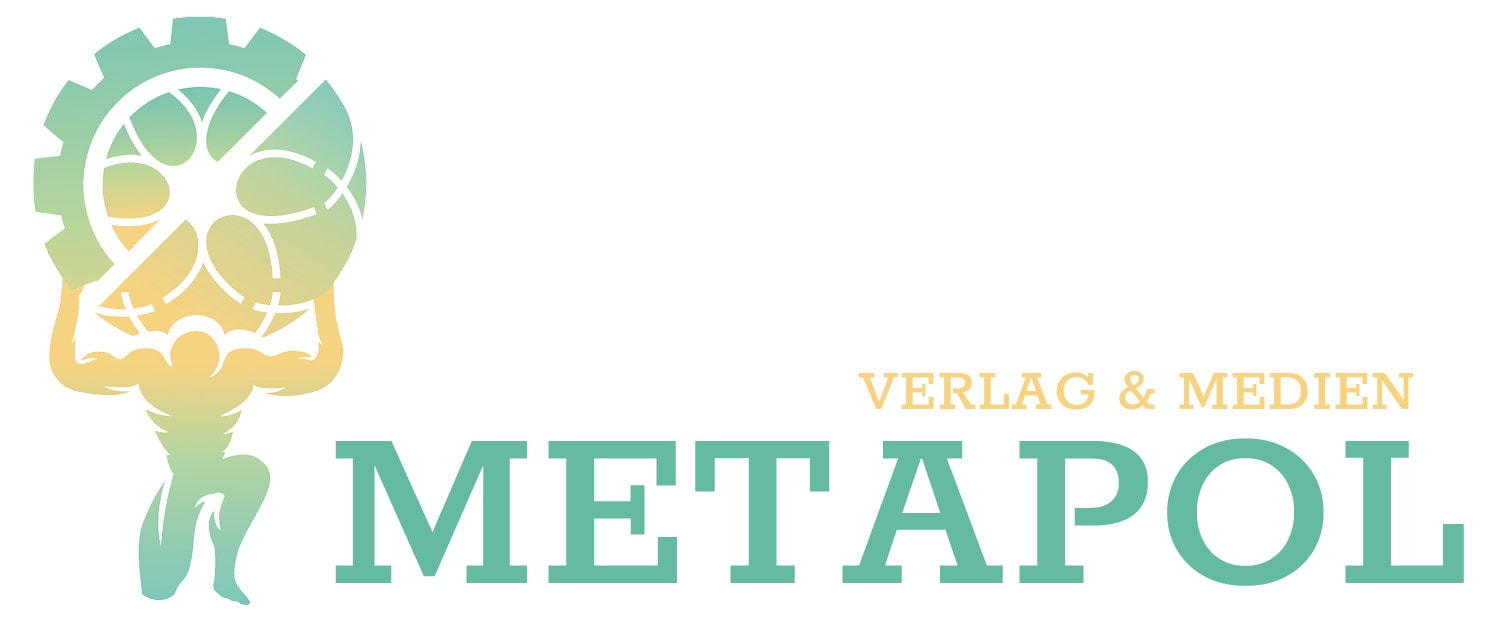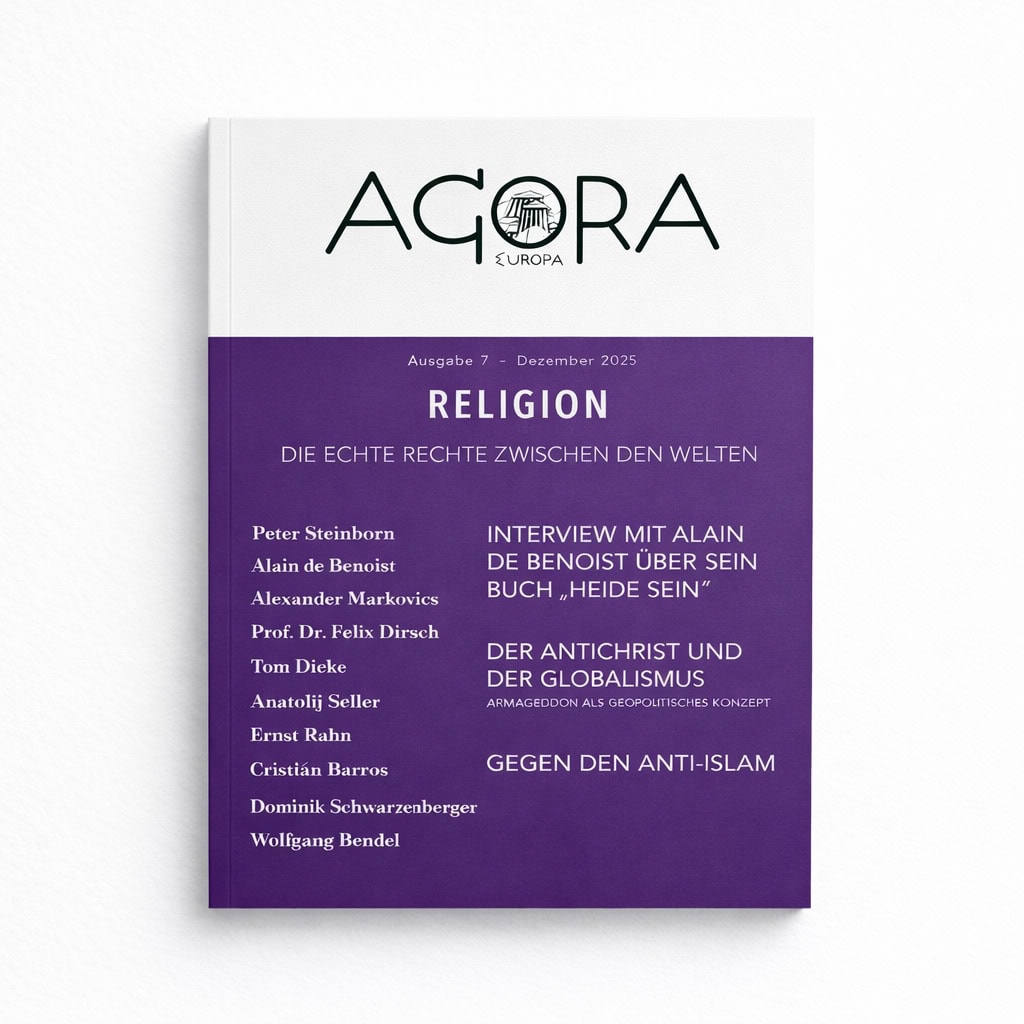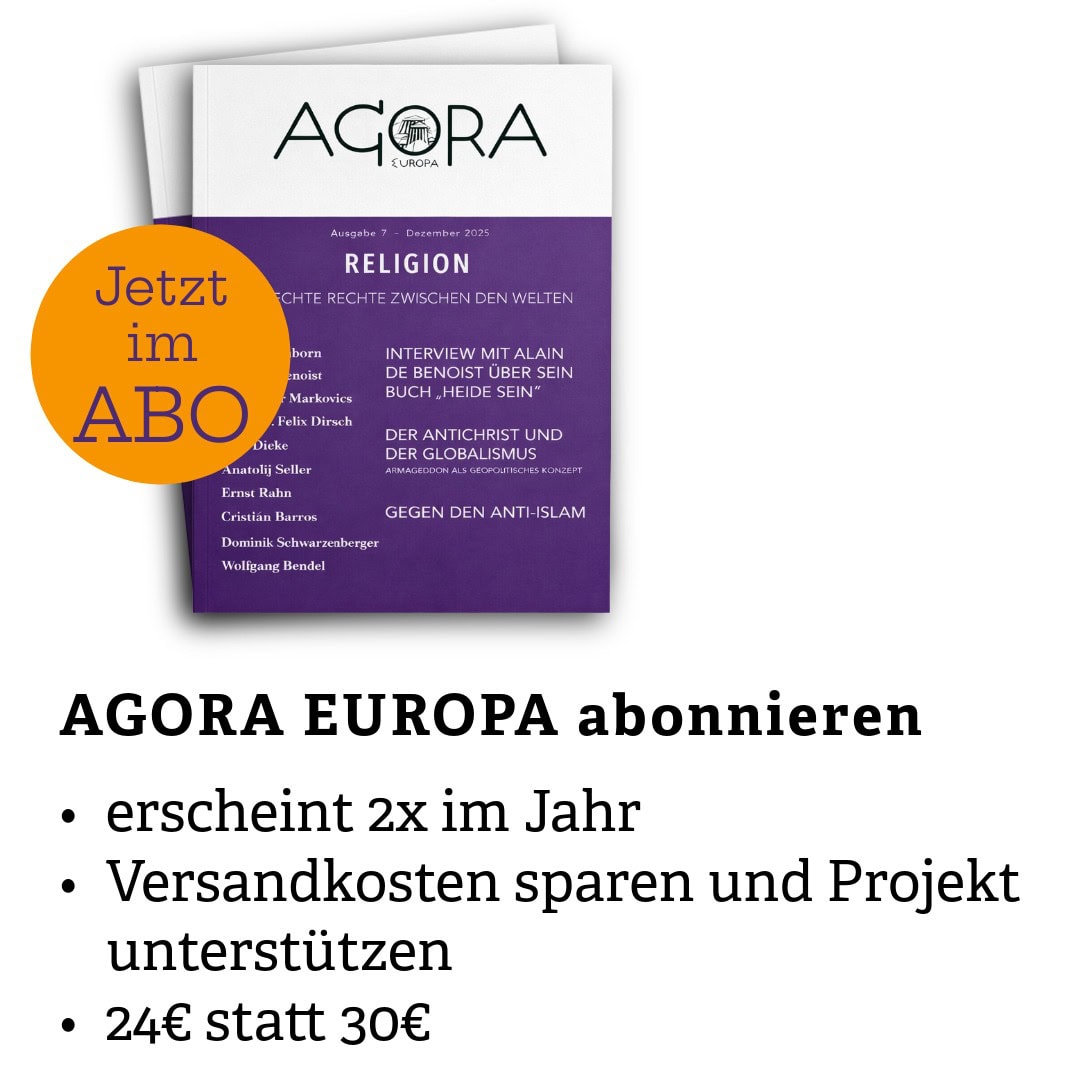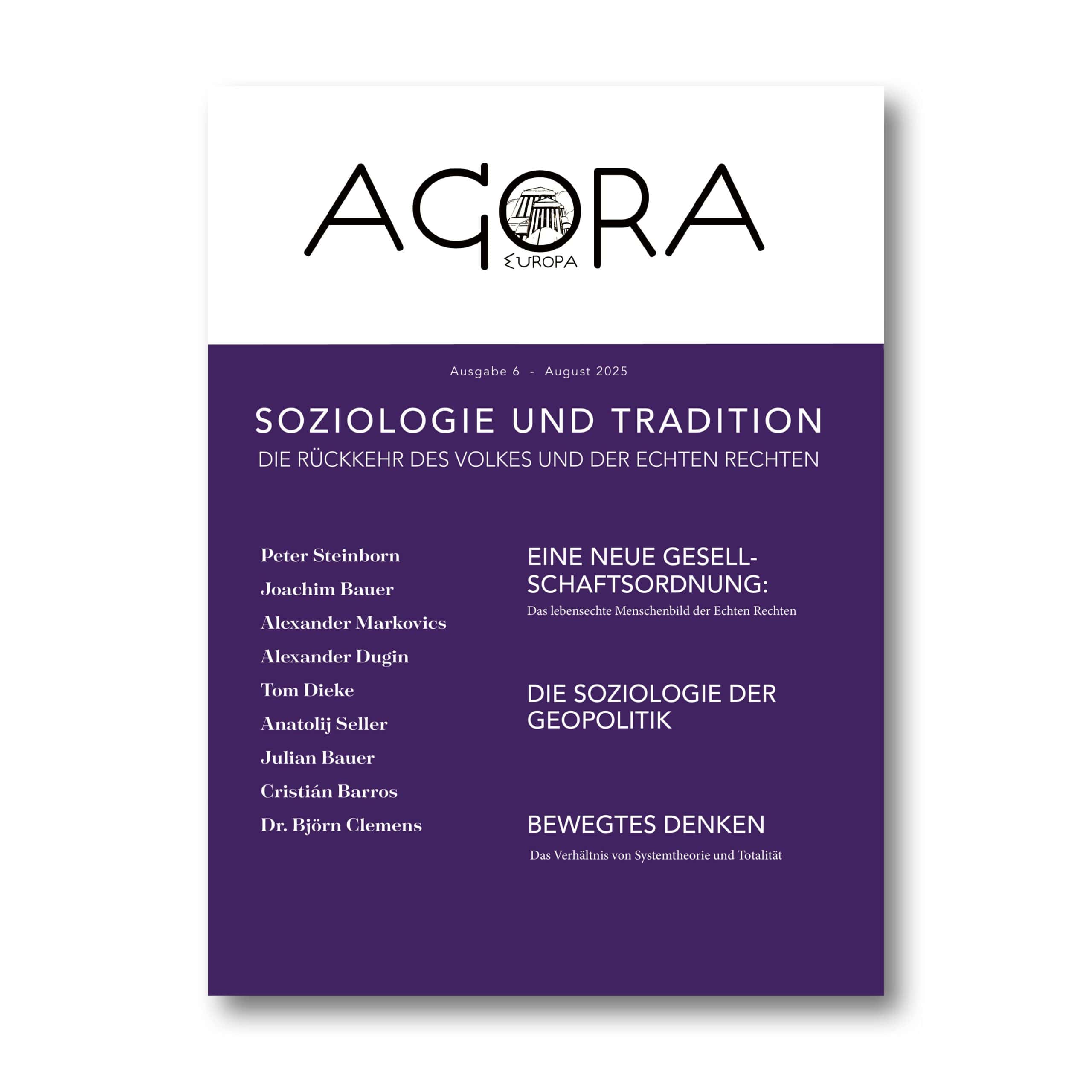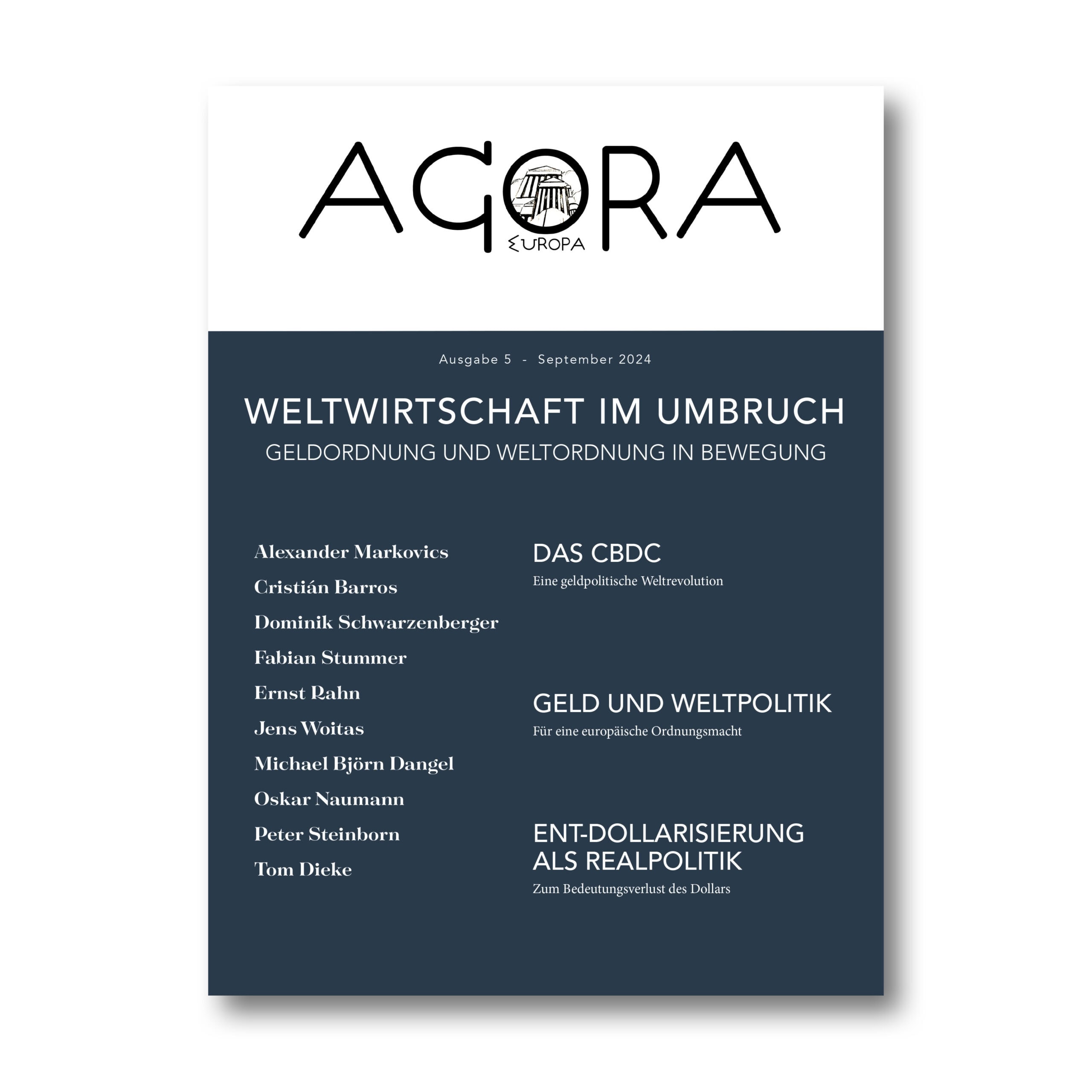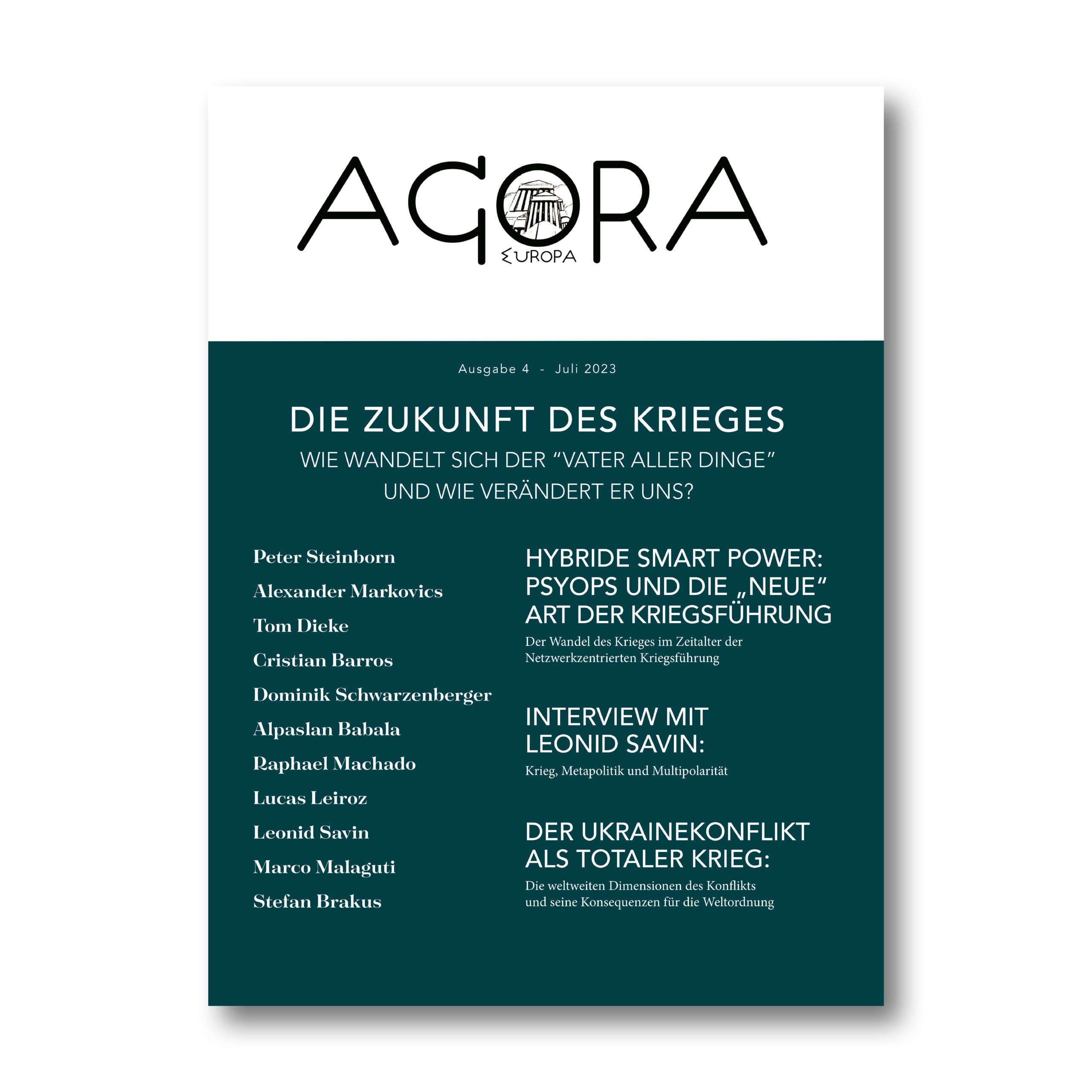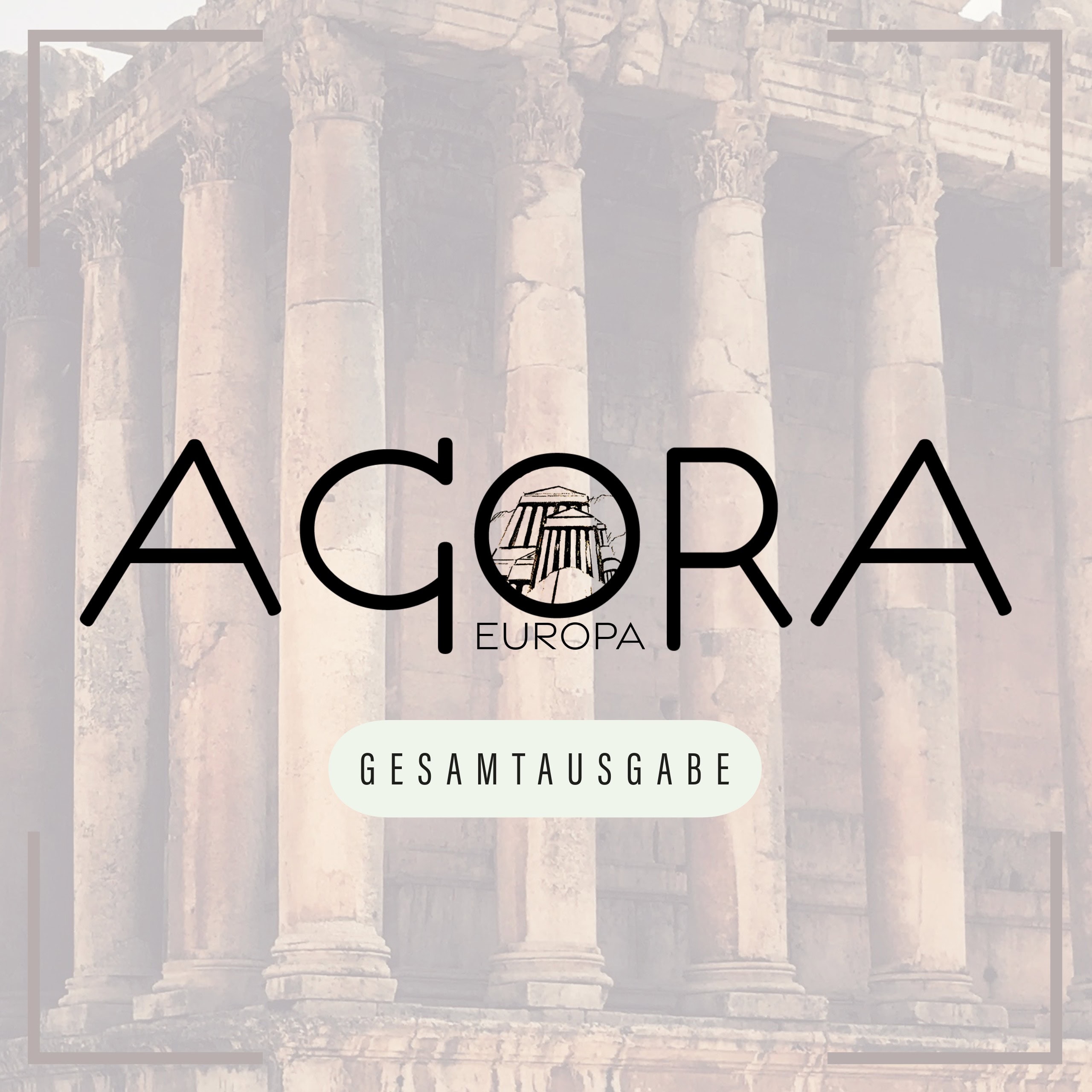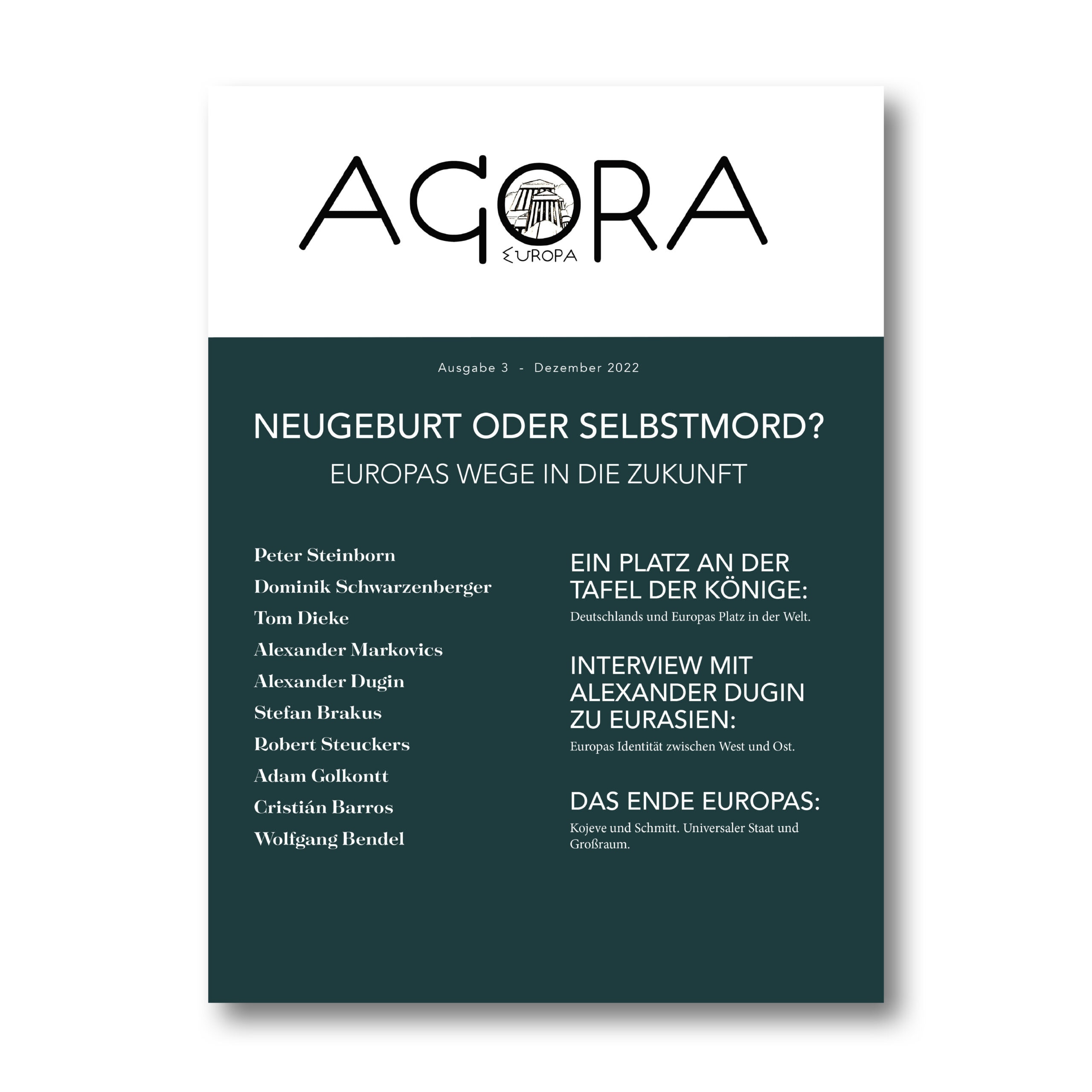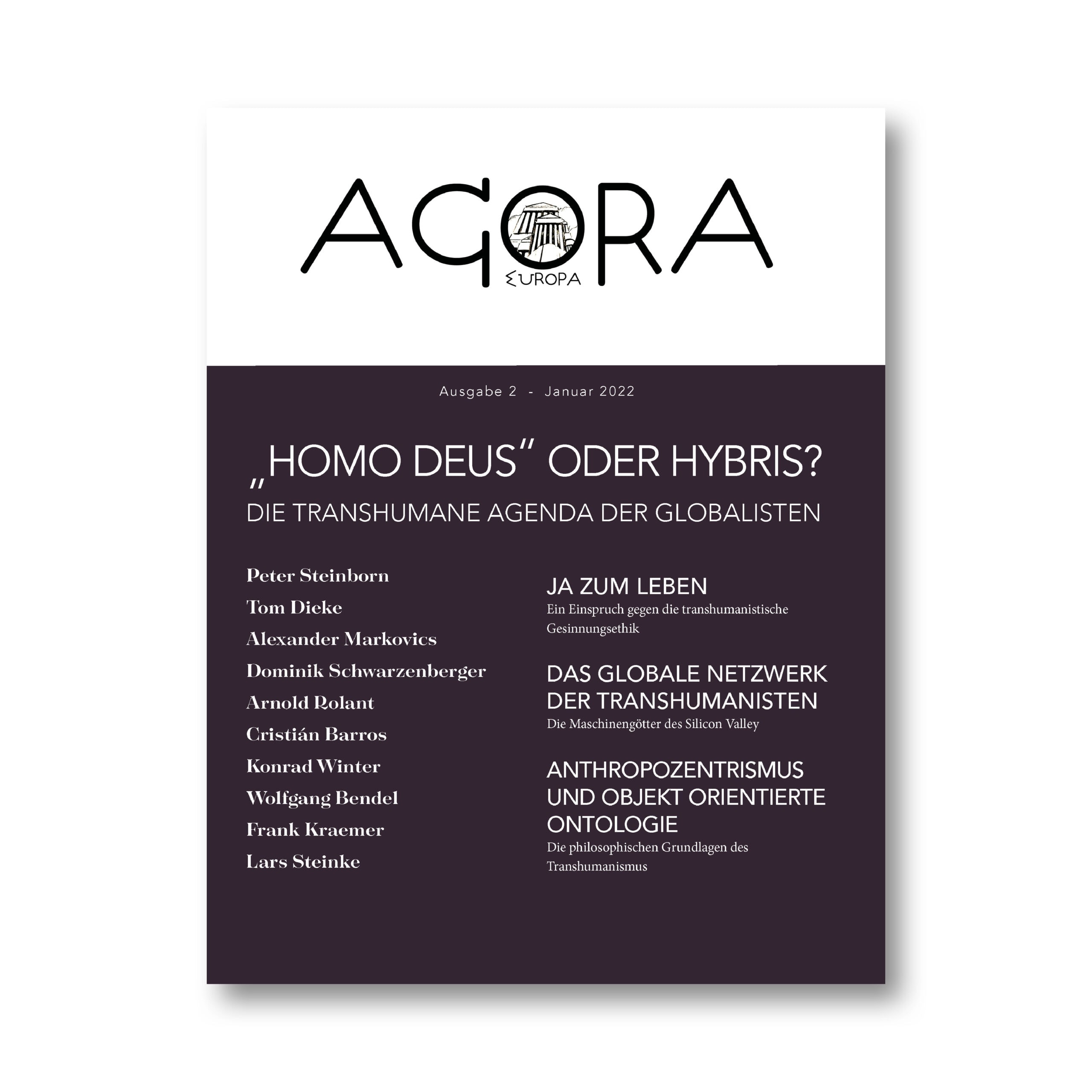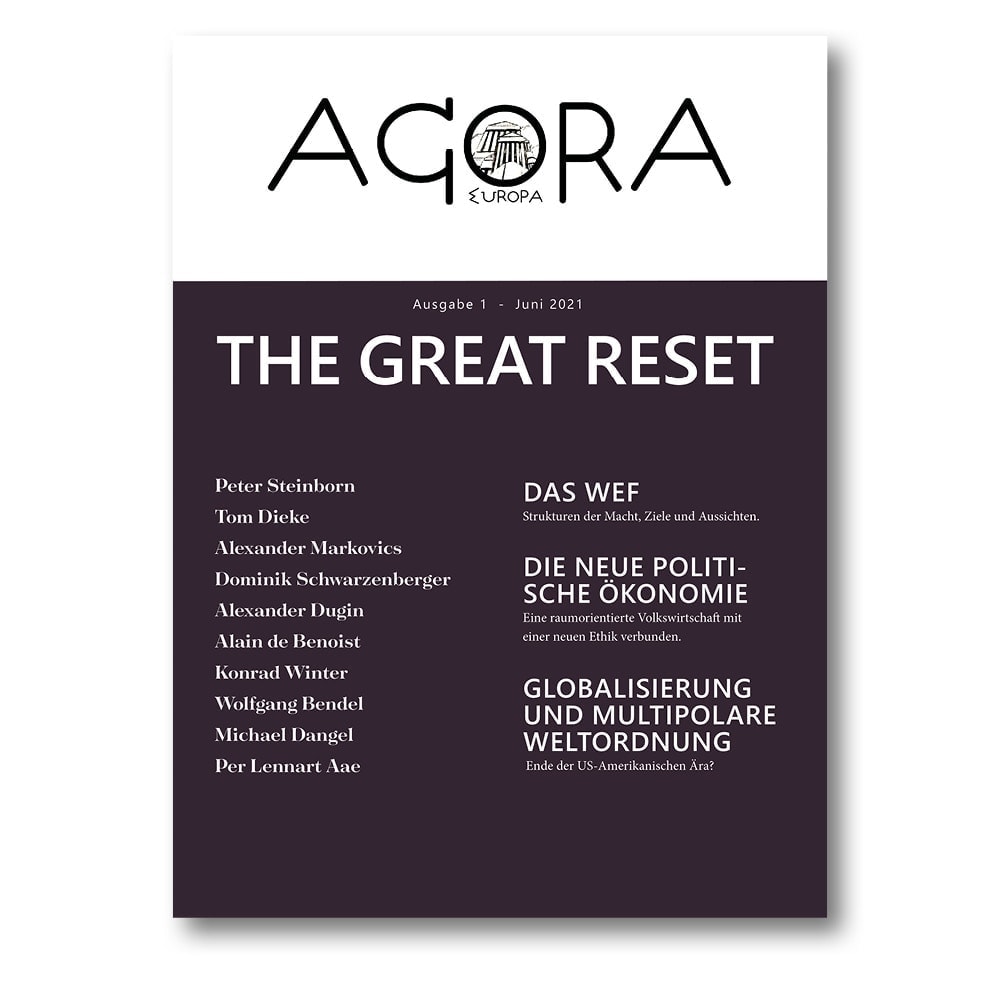Agora Europa – Religion
Agora Europa – Religion: Die Echte Rechte zwischen den Welten
Kann es einen deutschen Islam geben? Was ist die richtige Religion für Deutschland und Europa? Ist die Demokratie zur Zivilreligion geworden? Welche Rolle spielt die Religion in der Geopolitik? Haben religiöse Gruppen einen evolutionären Vorteil gegenüber atheistischen und säkularen Gesellschaften? Diese und weitere Fragen stellen sich unsere Autoren in dieser nunmehr 7. Ausgabe unseres „Marktplatzes der Ideen“.
Die AGORA Europa ist DIE metapolitische Theoriezeitschrift der Echten Rechten. In dieser Ausgabe befasst sich ein breites Autorenkollektiv mit der Frage nach dem Sinn des Lebens und wandelt zwischen dem wissenschaftlichen Anspruch einer Theoriezeitschrift und der Metaphysik, die das Thema mit sich bringt. Die Rechte ohne Metaphysik, ohne Mythos und Religion ist nicht denkbar. So viel ist sicher. Peter Steinborn und Alexander Markovics zeigen dies in ihren Agoge-Artikeln deutlich auf und weisen die philosophischen Wurzeln nach, während Wolfgang Bendel die staatspolitische Frage nach einer religiösen Aristokratie bekräftigt.
Prof. Felix Dirsch betrachtet die Welt aus Sicht eines Christen, Alain de Benoist hält mit einer Betrachtung als Heide dagegen, Josef Schüßlburner veranschaulicht die verfassungsrechtliche Verankerung einer zivilreligiösen Tendenz des Demokratismus innerhalb der säkularen Gesellschaft.
Gleichzeitig skizziert Anatolij Seller die Entstehung einer neuen Religion durch einen dialektischen Werdungsprozess, während Tom Dieke uns die Ahnenverehrung als einen zeitlosen Akt echter Religiosität in allen Gesellschaften aufzeigt, die selbst in säkularen Gruppen vorkommt. Cristián Barros zeigt den philosophischen Einfluss Heideggers auf die Theologie des Irans auf und welche geopolitischen Komponenten damit einhergehen. Parallel befassen sich Dominik Schwarzenberger und Peter Steinborn mit der Frage, welchen Einfluss Religionen auf die Geopolitik haben. Letzter zeigt auf, wie stark die Vorstellungen von einem Armageddon und dem Antichristen und das damit verbundene Selbstverständnis der Staaten in der Weltgeschichte verwurzelt sind. Zuletzt unternimmt Ernst Rahn eine wissenschaftliche Untersuchung, wie stark der Rückgang der Religiosität wirklich ist, und kommt dabei zu verblüffenden Schlüssen.
Wer sich mit der Frage der Religion innerhalb von Gesellschaften und Staaten befassen möchte, dieses Thema also von der staatspolitischen Seite betrachten möchte, dem ist diese Ausgabe ein solider und umfangreicher Fundus.
